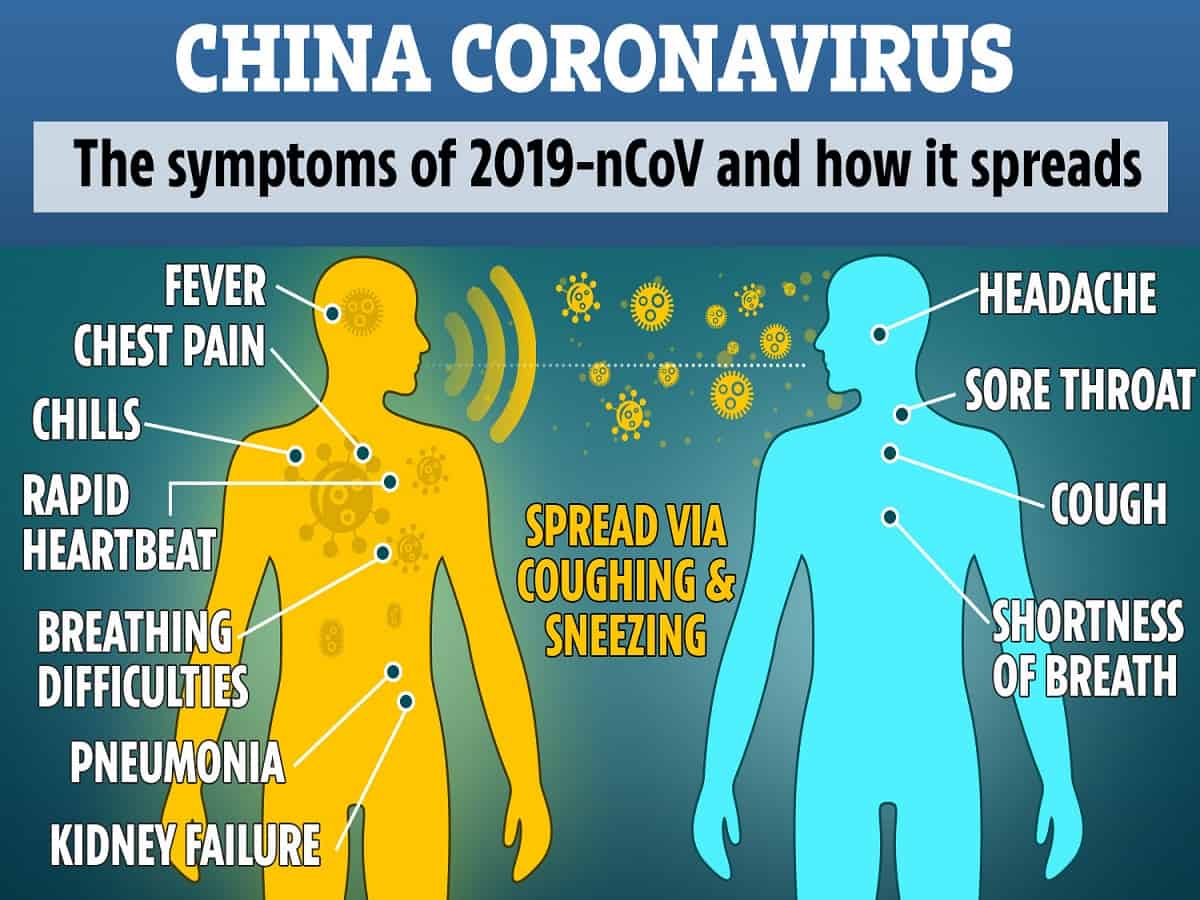Beijing: The numbers in China’s mystery – coronavirus – are escalating fast, with more than 1,300 people infected and some 41 deaths recorded so far. Another 15 deaths in the Hubei province, where the outbreak began, were announced on Saturday.
While the vast bulk of cases have been confined to China, cases in this fast-moving outbreak have now been found in the United States, Hong Kong, Malaysia, France, Australia, Thailand, South Korea, Taiwan, Macau, Japan and the Philippines.
The UK is investigating a number of suspected cases, while officials there are trying to trace around 2,000 people who have recently flown to the UK from Hubei province. The virus has also now spread to Europe, with three cases confirmed in France.
Australia has also confirmed its first case, joining a handful of countries treating patients.
What is Coronavirus
The name for this kind of virus comes from the crownlike spikes it has on its surface — “corona” is Latin for “crown.” Coronaviruses are a large group of viruses that infect mostly bats, pigs and small mammals. In rare cases, they are what scientists call zoonotic, meaning they can be transmitted from animals to humans, according to the US Centers for Disease Control and Prevention.
How does it spread
Like other coronaviruses – such as the common cold – the virus is spread via droplets when a person coughs or sneezes. It can also be spread when someone touches a contaminated surface such as a door handle.
Hospitals are also key locations for “super spreading” events – when a single patient infects many people. When patients arrive in hospital with vague respiratory symptoms health workers may not know they need to take special precautions such as wearing masks or keeping them away from other patients.
The outbreak originates from animals and the source is thought to be a seafood market in Wuhan which also traded in other live animals such as marmots and bats.
How to prevent Coronavirus
There is no vaccine to protect against this family of viruses, at least not yet. Trials for a MERS vaccine are underway. The US National Institutes of Health is working on a vaccine against the new virus, but it will be months until clinical trials get underway and more than a year until it might become available.
You may be able to reduce your risk of infection by avoiding people who are sick. Try to avoid touching your eyes, nose and mouth. Wash your hands often with soap and water and for at least 20 seconds.Awareness is key.
If you are sick and have reason to believe it may be the Wuhan coronavirus due to travel to the region or coming into contact with someone who has been there, you should let a health care provider know and seek treatment early.Cover your mouth and nose when you cough or sneeze, and disinfect the objects and surfaces you touch.If traveling to China, be aware of symptoms and avoid living in animal markets, which is where the latest outbreak began in Wuhan.
Symptoms of Coronavirus
The viruses can make people sick, usually with a mild to moderate upper respiratory tract illness, similar to a common cold. Coronavirus symptoms include a runny nose, cough, sore throat, possibly a headache and maybe a fever, which can last for a couple of days.
Three to four out of every 10 patients infected with MERS died, according to the CDC. Severe acute respiratory syndrome, also known as SARS, is the other coronavirus that can cause more severe symptoms. First identified in the Guangdong province in southern China, according to the WHO, it causes respiratory problems but can also cause diarrhea, fatigue, shortness of breath, respiratory distress and kidney failure.
Treatment of Coronavirus
Though there are potential therapeutics but there are no specific treatments for coronaviruses – just as there is no treatment for the common cold.
Peter Horby, professor of emerging infectious diseases and global health, at the Centre of Tropical Medicine and Global Health at the University of Oxford, said the disease bore all the signs of a “classic viral pneumonia”.
“There are currently no antivirals for this, so care is just supportive, supporting the lungs and other organs until patients recover,” he said.
“There are other potential therapeutics out there but no effective antiviral,” he added.
According to CNN, researchers in the US and China have already begun working on a vaccine, thanks to China’s prompt sharing of the virus’s genetic code.
However, any vaccine will not be available for up to a year and would most likely be given to health workers most at risk of contracting the virus.

